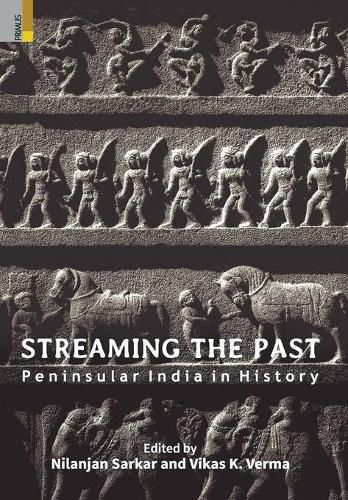Readings Newsletter
Become a Readings Member to make your shopping experience even easier.
Sign in or sign up for free!
You’re not far away from qualifying for FREE standard shipping within Australia
You’ve qualified for FREE standard shipping within Australia
The cart is loading…






This title is printed to order. This book may have been self-published. If so, we cannot guarantee the quality of the content. In the main most books will have gone through the editing process however some may not. We therefore suggest that you be aware of this before ordering this book. If in doubt check either the author or publisher’s details as we are unable to accept any returns unless they are faulty. Please contact us if you have any questions.
In a conscious bid to avoid the categorization of ‘south’ India Streaming the Past: Peninsular India in History changes the framework of the historical meta-narrative of the nation, which has failed to integrate the history of premodern peninsular India within it. This book demonstrates that a collection of varied essays is, in fact, a woven tapestry with perforated boundaries and a stage for interdisciplinary voices to speak to one another in several ways. Put differently, the volume streams the past to create a level playing field for individual historical research designs to interact with the larger patterns of India’s history.
Focusing on peninsular India, the essays cover diverse topics stretching from megalithic times to the eighteenth century. They rely on classical languages and historical materials to source information, employ versatile methods and examine wide-ranging themes including archaeological sites, trade routes, iron technology, water management, coinage, social hierarchies, goddesses and narrative traditions, performing arts and culture, forms of protests, crime and punishment, and narratives of death alongside socioeconomic and political processes. Individually and collectively, the book intervenes, disturbs and challenges the dominant gaze of history-writing in India, and argues for a more wide-angled and cosmopolitan understanding of India’s complex history.
$9.00 standard shipping within Australia
FREE standard shipping within Australia for orders over $100.00
Express & International shipping calculated at checkout
This title is printed to order. This book may have been self-published. If so, we cannot guarantee the quality of the content. In the main most books will have gone through the editing process however some may not. We therefore suggest that you be aware of this before ordering this book. If in doubt check either the author or publisher’s details as we are unable to accept any returns unless they are faulty. Please contact us if you have any questions.
In a conscious bid to avoid the categorization of ‘south’ India Streaming the Past: Peninsular India in History changes the framework of the historical meta-narrative of the nation, which has failed to integrate the history of premodern peninsular India within it. This book demonstrates that a collection of varied essays is, in fact, a woven tapestry with perforated boundaries and a stage for interdisciplinary voices to speak to one another in several ways. Put differently, the volume streams the past to create a level playing field for individual historical research designs to interact with the larger patterns of India’s history.
Focusing on peninsular India, the essays cover diverse topics stretching from megalithic times to the eighteenth century. They rely on classical languages and historical materials to source information, employ versatile methods and examine wide-ranging themes including archaeological sites, trade routes, iron technology, water management, coinage, social hierarchies, goddesses and narrative traditions, performing arts and culture, forms of protests, crime and punishment, and narratives of death alongside socioeconomic and political processes. Individually and collectively, the book intervenes, disturbs and challenges the dominant gaze of history-writing in India, and argues for a more wide-angled and cosmopolitan understanding of India’s complex history.